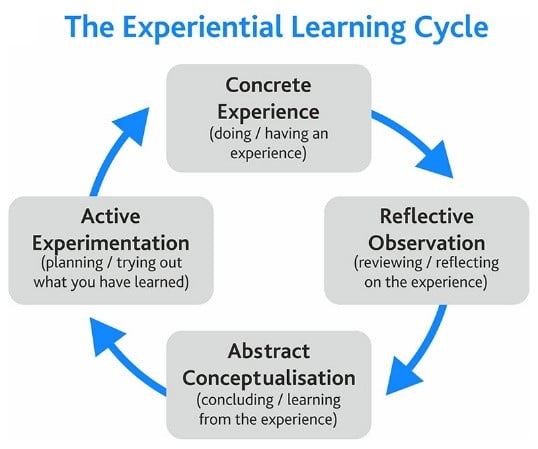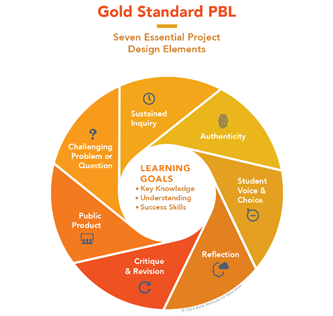Experiential Learning
The UNIV 1131 and 1101 first-year seminars are grounded in the belief that students will succeed academically and in their careers if they apply the skills they are learning in the classroom. Accordingly, the New Student Courses at the University of Texas at Arlington are based in a philosophy of experiential learning. By engaging in experiential learning, students will begin to build competencies that support them in building confidence in their abilities to not only succeed as students but to also take advantage of the opportunities available at UTA.

Experiential learning integrates experience, perception, cognition, and behavior together into a process that takes the abstract and makes it concrete through observation, action, reflection, and feedback (Kolb, 1984). Experiential learning is meant to be a dialectic process (Kolb, 1984; Dewey, 1938) where learning is a process (Kolb & Kolb, 2005) that “results from synergetic transactions between the person and the environment” (Kolb & Kolb, 2005, p. 194). Context and application are the driving characteristics of experiential learning and they shape how learning within the UNIV sections occur.

Project Based Learning (PBL) is an educational strategy employed within the experiential learning framework that structures our courses. PBL is based on the following principles: learning appropriate goals, scaffolding for both student and teacher learning, frequent opportunities for self-assessment and revision, and partnerships with organizations that support a sense of agency (Baron, Schwartz, Vye, Moore, Petrosino, Zech, Bransford, and the Cognition and Technology Group at Vanderbilt, 1998). A form of student-centered learning, PBL is organized around a central question where students engage in sustained inquiry on a real, meaningful problem to them.
By engaging in this type of learning model, students will develop competencies and other skills that complement the curriculum already taught in the UNIV courses (critical thinking skills, communication skills, student success skills, goal setting, and teamwork). Students will construct and respond to questions within their immediate collegiate community and work with community partners to understand and respond to the impact of food scarcity by presenting a response that the community partnership can enact. Ultimately, students will be engaging in acts of service learning in pursuit of responding to the challenging problem or question presented by project-based learning.
All of our experiential learning and PBL experiences reflect the goals of the Maverick Advantage, a program unique to UTA that encourages the development of marketable skills through experiential learning opportunities inside and outside the classroom within the five distinguishing activities. This competitive advantage distinguishes UTA students from their peers and prepares them for the workforce or future academic endeavors.
Maverick Advantage 5 Distinguishing Activities:

CAREER DEVELOPMENT
Explore, engage, and develop through work that enables you to reach lifelong professional and personal success.

COMMUNITY ENGAGEMENT
Serve the community beyond the boundaries of campus through intentional, engaging experiences and encouraging others to be civically engaged.

GLOBAL ENGAGEMENT
Interact effectively with diverse audiences by bridging geographic, linguistic, ideological, and cultural barriers.

LEADERSHIP DEVELOPMENT
Discover personal strengths, essential skills and relationships that guide you on a journey to serve as an effective leader.

UNDERGRADUATE RESEARCH
Prepare for graduate school and apply knowledge in an environment outside the classroom.